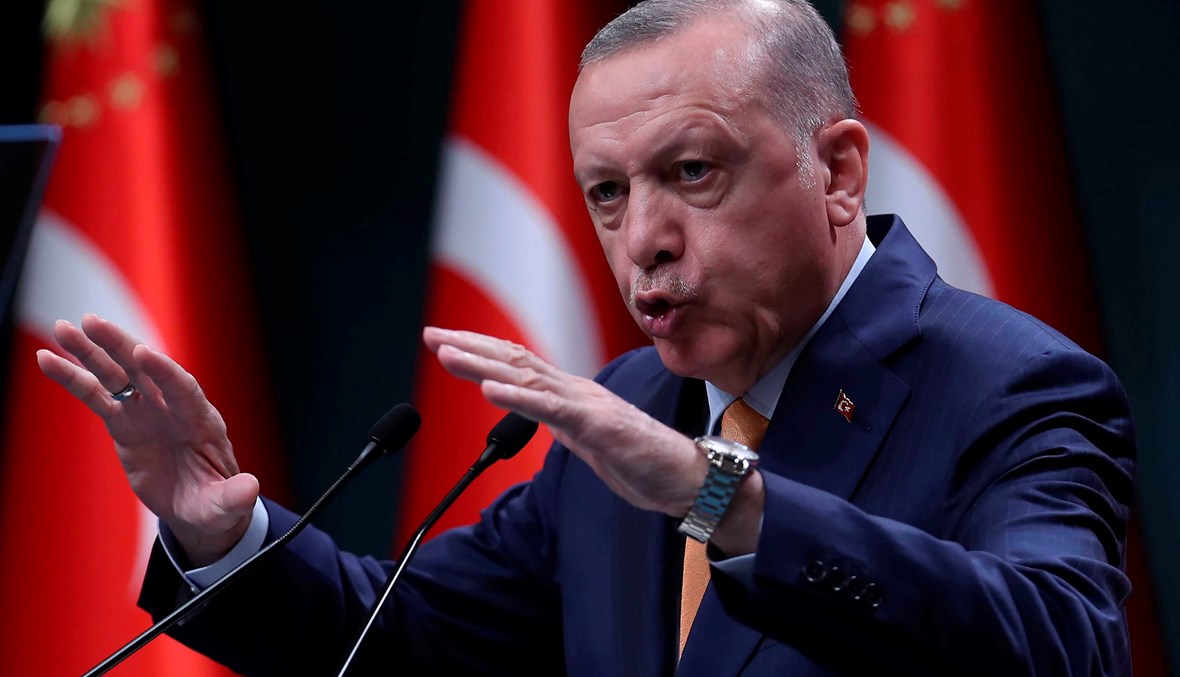
-
Published: 07 May 2023

Turkish President Recep Tayyip Erdogan (69) is running in elections on May 14, the results of which seem inconclusive in his favor and in which he faces a unified opposition for the first time, and Erdogan seems determined to stay five more years at the helm of the country of 85 million people, which he has introduced deep changes to but is now experiencing an economic crisis
Edited by| Christian Megan
Politic section - CJ journalist
Istanbul - May,7,2023
He is being contested by three candidates, including his main opponent Kemal Kilicdaroglu, 74, the candidate of an alliance of six opposition parties from the nationalist right
to the Democratic Left, dominated by the Republican People's Party, created by the founder of modern Turkey Mustafa Kemal Ataturk.
"Kamal", as he introduces himself on the propaganda posters, received unprecedented support from the leftist pro-Kurdish Peoples ' Democratic Party, which called for a vote
in his favor.
If he wins this election, he will become the thirteenth president of the Republic of Turkey, which celebrates this year the centenary of its proclamation, succeeding Erdogan,
who set the record for his time in power since the end of the Ottoman Empire.
Between the conservative Islamic Justice and Development Party headed by Erdogan and the secular Republican People's Party represented by Kilicdaroglu, the Turks seem to have two options, the first of which is an authority that is increasingly inclined to authoritarianism, with 16,753 people officially accused in 2022 of"insulting the Turkish
President", and dominated by an Islamic character.
The second option is a promise of a democratic transition and a return to "calm" relations in the country and with the rest of the world.
64 million Turkish voters, including 3.4 million who voted abroad until Tuesday, are also choosing members of Parliament.
Opinion polls, which have been banned until the ballot, predict a sharp competition in the presidential elections, in which both camps assert that they can win from the first round, otherwise, a second round will be organized on May 28.
Kilicdaroglu was able to quickly remove what could seem to be an obstacle to his campaign-his affiliation with the Alawite sect in a predominantly Sunni country, in a video that spread on social networks.
Touching upon each of the topics on the table, from the economy and purchasing power, with inflation exceeding 85 percent in October, to public freedoms, he promises;
"Justice, law and pacification".
In a country suffering from an economic crisis and a serious crisis of confidence, Young University graduates, engineers, and doctors are trying to leave him, Recep Tayyip Erdogan is fighting with all his might to save his legacy and can count on about thirty percent of voters for sure.
The president's camp releases election promises with figures from pensions to housing and energy bills, expresses regret, accuses his rivals of collusion with the PKK"
terrorists", condemns his links with the West and its" conspiracies" and calls him an" LGBT supporter "who wants to"destroy the family".
How do these ads resonate with the 5.2 million young people who will be voting for the first time They have known only Erdogan and his authoritarian bent since the large
protests in 2013 and the failed coup in 2016, which led to the arrest of tens of thousands.
"This spring will come through you," Kilicdaroglu said.
An opinion poll conducted by the Metropol Institute revealed that the majority of 18-24-year-olds support him, but thirty percent will choose Erdogan.
Another unknown point is the impact of the powerful earthquake that struck the south of the country on the sixth of February and claimed the lives of more than fifty
thousand people along with an unknown number of missing.
The survivors who have condemned the slowness of the relief operations are distributed in the country or refugees staying in tents and containers.
The Council of Europe, which will send 350 observers to the elections in addition to party observers in 50 thousand offices, warned that this situation reinforces concerns related to the safety of electoral processes and the"state of democracy" in Turkey.
The opposition took the initiative by mobilizing 300 thousand auditors and doubling the number of trained lawyers to monitor the ballot.
"We do not live in a banana republic," stressed the deputy chairman of the Republican People's Party in charge of election security Oguz Kan Salichi.
A Diplomat reports that Turkey is keen on the principle of elections. "Even when the army leads a coup every ten years, they put the question of their authority at the ballot box," he said.
But Kemal Kilicdaroglu cautiously advised his supporters to"stay at home" in the event of a victory for fear of violence.
Until then Recep Tayyip Erdogan occupies the square. The Supreme Council for Broadcasting and Television (artrek) said it allocated 32 hours of live broadcasts of presidential speeches between April 01 and May 01, compared to 32 minutes for Kilicdaroglu.
{source}<script async src="https://pagead2.googlesyndication.com/pagead/js/adsbygoogle.js?client=ca-pub-4474625449481215"
crossorigin="anonymous"></script>
<!-- moss test ad -->
<ins class="adsbygoogle"
style="display:block"
data-ad-client="ca-pub-4474625449481215"
data-ad-slot="6499882985"
data-ad-format="auto"
data-full-width-responsive="true"></ins>
<script>
(adsbygoogle = window.adsbygoogle || []).push({});
</script>{/source}
